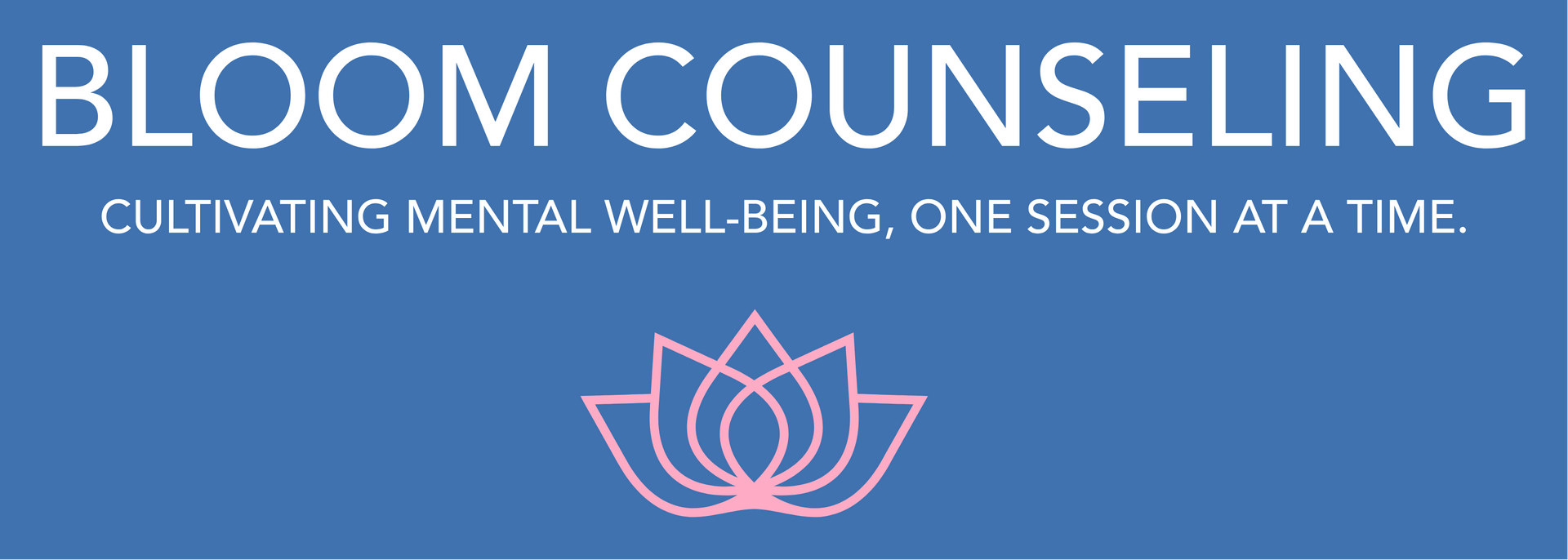Mental Health Resources

Addiction can develop slowly, and its signs may not always be immediately obvious. However, recognizing the warning signs early can lead to better intervention and support. At Bloom Professional Counseling, we help individuals identify addiction and take steps toward recovery. Some common signs of addiction include an increased focus on obtaining and using a substance or engaging in a behavior, often at the expense of other responsibilities. Individuals may also display mood swings, irritability, or secrecy, especially when it comes to discussing their habits. Physical symptoms like changes in appearance, weight loss, or neglecting personal hygiene are also common. Other signs include failing to control or reduce substance use despite attempts to do so, and experiencing withdrawal symptoms when trying to stop. Relationships and work or school performance may suffer as a result of addiction, with the individual prioritizing their addictive behavior. If you or a loved one is exhibiting these signs, seeking help is crucial. At Bloom Professional Counseling, we offer compassionate support for those struggling with addiction. Reach out today to begin the path to recovery.

Addiction can be a challenging condition, but therapy offers essential support in the recovery process. At Bloom Professional Counseling, we believe therapy plays a key role in helping individuals break free from addiction and regain control of their lives. Therapy addresses the root causes of addiction, such as trauma, mental health issues, or emotional distress. By uncovering these underlying factors, therapy helps individuals develop healthier coping mechanisms and better manage triggers, reducing the risk of relapse. Cognitive-behavioral therapy (CBT) is a powerful tool in addiction recovery, helping individuals challenge negative thought patterns and replace them with healthier behaviors. Other approaches, such as group therapy and motivational interviewing, offer support, accountability, and a sense of community, which are vital for long-term recovery. If you or a loved one is struggling with addiction, therapy can provide the guidance and tools needed to create lasting change. At Bloom Professional Counseling, we are dedicated to helping individuals heal and build a healthier future. Reach out today to start your recovery journey.

Insomnia is more than just a sleep problem—it can have a significant impact on your mental health. At Bloom Professional Counseling, we understand that sleep is deeply connected to emotional and psychological well-being. Chronic insomnia can lead to a range of mental health challenges, often creating a cycle that is difficult to break. One of the most common impacts of insomnia is heightened anxiety. As individuals struggle to get the sleep they need, stress levels often increase, making it harder to relax and unwind. This can lead to a constant state of worry and tension, exacerbating feelings of anxiety. In addition, insomnia is closely linked to depression. Lack of sleep affects the brain’s chemistry, particularly neurotransmitters like serotonin, which play a key role in regulating mood. Without adequate rest, individuals may experience irritability, sadness, and a lack of motivation, which are common symptoms of depression. Sleep deprivation can also impair cognitive function, affecting concentration, memory, and decision-making abilities. This can create a sense of confusion or difficulty focusing, making everyday tasks more challenging. If you’re struggling with insomnia and its impact on your mental health, it’s essential to seek support. At Bloom Professional Counseling, we specialize in helping individuals address the root causes of sleep issues, whether related to stress, anxiety, or other mental health concerns. We provide compassionate, evidence-based treatment to help restore balance and improve your overall quality of life.

Insomnia is a common sleep disorder that affects many individuals, and recognizing its signs early can lead to better management and improved well-being. At Bloom Professional Counseling, we understand that quality sleep is essential for mental and emotional health, and identifying insomnia can be the first step toward finding the right solution. Some of the most common signs of insomnia include difficulty falling asleep, waking up frequently during the night, and struggling to fall back asleep after waking. These disruptions may leave individuals feeling fatigued and restless throughout the day. Other signs to watch for include irritability, difficulty concentrating, and a general sense of being “on edge.” Over time, chronic insomnia can impact overall mental health, contributing to feelings of anxiety, depression, and stress. If you experience these symptoms regularly for more than a few weeks, it may be time to consult a licensed professional counselor or healthcare provider for guidance. At Bloom Professional Counseling, we offer compassionate support for those struggling with sleep disorders like insomnia. By addressing underlying causes such as stress, anxiety, or depression, we help our clients achieve restful, restorative sleep and improve their overall quality of life. If you or someone you know is experiencing signs of insomnia, don’t hesitate to reach out to Bloom Professional Counseling for professional support. We’re here to help you find balance and peace in your life.

Millions of adults and children worldwide deal with Attention Deficit Hyperactivity Disorder (ADHD). It's a neurodivergent condition affecting how your brain processes attention, impulse control, and sometimes, activity levels. Common Symptoms: Trouble Focusing: Finishing tasks, staying organized, and easily getting distracted. Hyperactivity: Feeling restless, fidgety, or having trouble staying still. Impulsivity: Acting without thinking, interrupting conversations, or having trouble waiting your turn. Types of ADHD: Predominantly Inattentive: Difficulty focusing is the main symptom. Predominantly Hyperactive-Impulsive: Excessive energy and impulsive actions are most prominent. Combined Type: A mix of both inattentive and hyperactive-impulsive symptoms. Can You Relate? ADHD isn't always a "childhood" issue. If you suspect you might have ADHD, you're not alone! Bloom Professional Counseling offers psychological evaluations and diagnoses by Dr. Chris Babo. With the proper support, you can manage your ADHD and thrive. Ready to Learn More? Head to our website ( www.healwithbloom.com ) to schedule psychological testing with Dr. Babo.

Living with a chronic illness can be challenging on multiple levels. Physical symptoms, emotional turmoil, and life adjustments can significantly impact your well-being. Chronic illness counseling offers a supportive space to navigate these challenges. Therapy provides a platform to address the emotional toll of chronic illness. You can explore feelings of grief, anger, or frustration, and develop healthy coping mechanisms. A skilled therapist can help you build resilience, improve self-esteem, and enhance your overall quality of life. Counseling also plays a crucial role in managing stress, a common companion of chronic illness. You'll learn relaxation techniques, time management strategies, and other tools to reduce stress and improve your ability to cope. If you're seeking chronic illness counseling in Houston, Bloom Professional Counseling offers compassionate and expert care. Our therapists understand the unique challenges of living with a chronic illness and can provide tailored support. Remember, seeking help is a sign of strength. By investing in your mental and emotional well-being, you're taking an important step towards managing your chronic illness effectively.

Depression is a complex condition, and finding the right treatment is essential for recovery. Therapy, often combined with medication, is a cornerstone of effective treatment. Here are some common therapy approaches for depression: Cognitive Behavioral Therapy (CBT): This focuses on identifying and changing negative thought patterns and behaviors. CBT is highly effective in treating depression. Interpersonal Therapy (IPT): This therapy concentrates on improving relationships and communication skills, addressing depression often linked to interpersonal issues. Psychodynamic Therapy: Exploring past experiences and unconscious patterns can help uncover the root causes of depression. Mindfulness-Based Cognitive Therapy (MBCT): Combining mindfulness techniques with CBT, MBCT helps individuals manage depressive symptoms and prevent relapse. Remember, the best form of therapy for you depends on individual needs and preferences. A qualified therapist can help determine the most suitable approach. If you're seeking professional help for depression in Houston, Bloom Professional Counseling offers a range of therapeutic approaches. Our experienced counselors can provide the support and guidance you need on your path to recovery.

Online therapy, or teletherapy, has become increasingly accessible and effective in recent years. While it may differ from in-person sessions, it offers numerous benefits. Here's how to make the most of your online therapy experience: Create a Dedicated Space: Designate a quiet, private area for your therapy sessions. This will help you focus and minimize distractions. Establish a Routine: Treat your online therapy sessions like in-person appointments. Schedule them at a consistent time and ensure you're available without interruptions. Utilize Technology: Familiarize yourself with the video conferencing platform your therapist uses. Test your equipment beforehand to ensure a smooth session. Open Communication: Honest and open communication with your therapist is essential. Don't hesitate to share your feelings, concerns, or any technical difficulties you encounter. Set Realistic Goals: Collaborate with your therapist to establish clear and achievable goals for your therapy. Regular check-ins will help you measure progress. If you're considering online therapy in the Houston area, Bloom Professional Counseling offers convenient and effective teletherapy services. Our experienced therapists can provide the support and guidance you need to achieve your mental health goals. Remember, online therapy is a valuable tool for accessing mental health care. By following these tips, you can maximize its benefits and create a positive therapeutic experience.

Insomnia, the persistent difficulty falling or staying asleep, can significantly impact your overall well-being. While over-the-counter sleep aids might offer temporary relief, therapy can provide a long-term solution. Therapy offers a safe and supportive space to explore the underlying causes of your sleep problems. A skilled therapist can help identify and address factors contributing to your insomnia, such as stress, anxiety, or depression. Through counseling, you'll learn effective coping mechanisms, relaxation techniques, and sleep hygiene practices. These tools empower you to take control of your sleep and improve your sleep quality. If you're struggling with insomnia in the Houston area, Bloom Professional Counseling offers specialized support. Our experienced therapists can help you develop personalized strategies to overcome sleep challenges and achieve restful nights. Remember, seeking help for insomnia is a sign of self-care. By investing in your sleep health, you're investing in your overall well-being.


